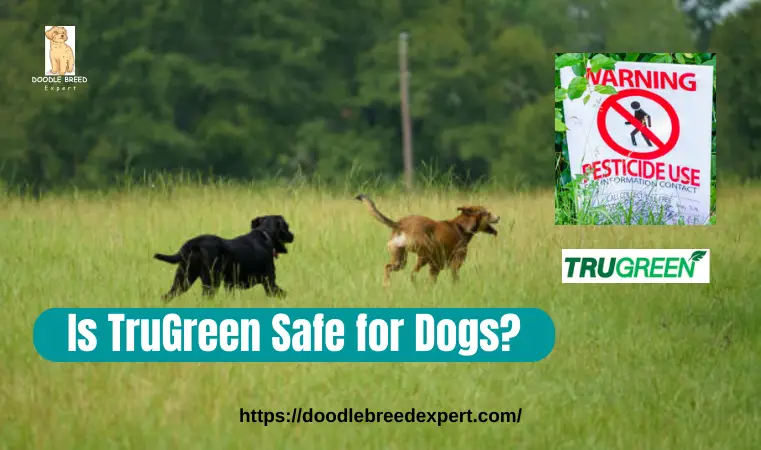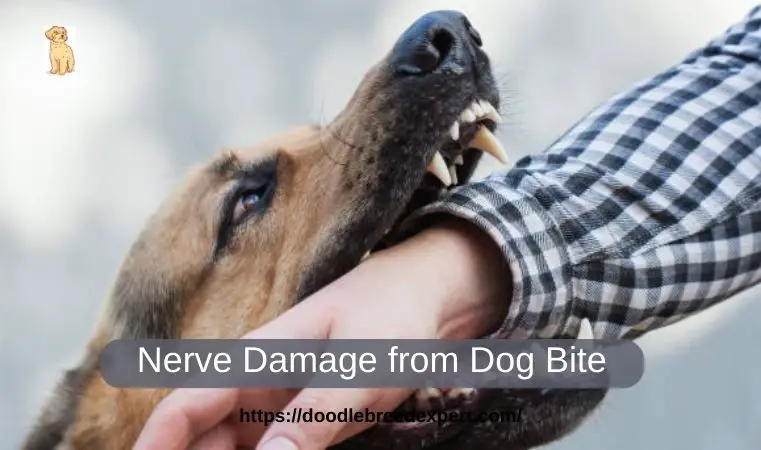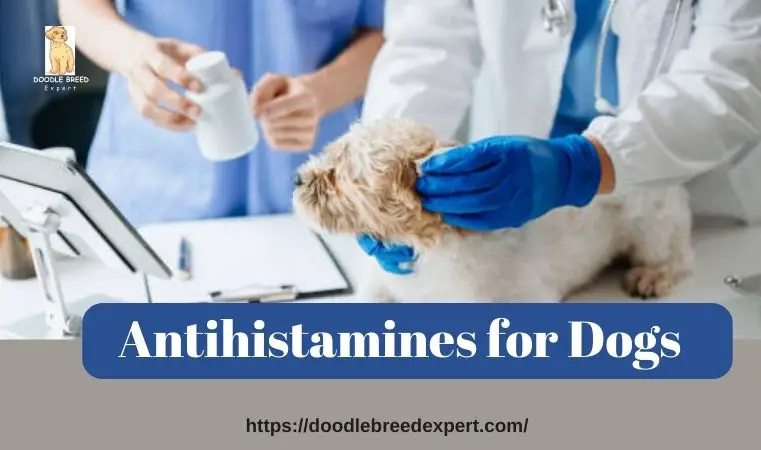Is TruGreen Safe for Dogs? A luxuriously well-manicured lawn is a joy to see. But keeping its beauty often comes at a price, and some of these costs can be seriously dangerous for your kids and pets. TruGreen must be one of the most famous brands in the USA that provides many services and programs suitable for any lawn and budget. However, what about dogs—is TruGreen safe for dogs? I would say no—not really.
When it comes to pets, these chemicals could be very harmful, especially if they happen to contact the stuff while still wet immediately after application. TruGreen understands that several dangers attach themselves to exposing children and animals to their treatment chemicals. They recommend waiting until the chemical has dried before allowing your children, dogs, and other pets to enjoy all the greenery.
This exposure may lead your dog, or other animals and pets, into a state of poisoning. While they stand their ground on this issue with statements about how safe and eco-friendly their chemicals are, there have been concerns about the safety of pets using TruGreen products.
Some online discussions inside lawn care forums have recorded cases where dogs died from exposure to TruGreen’s products. Read on as we continue researching more about this subject. The company itself will be tackled, as the chemicals they use and how you can utilize their services without risking your dog’s well-being.
What Is TruGreen? Is TruGreen Safe for Dogs?
TruGreen is a major US-based company in lawn maintenance services targeting large-scale customers. They purport to convert your lawns into lush, healthy spaces away from weed invasion. How do they claim to work that out? What products and activities are they involved in which could potentially risk the life of your dog? Let’s unfold! TruGreen carries out several vital lawn care services and supplies, such as:
- Fertilization: It offers essential nutrients required by your lawn for proper growth.
- Weed control: It manages weeds so as not to invade unwanted sites on the lawn.
- Aeration: This boosts soil health because it allows oxygen and nutrient penetration through the soil.
- Overseeding: To re-thicken your lawn and rejuvenate it by introducing new grass seed.
- Pest control: Services that help manage pests and activities to prevent them from destroying your lawn.
- Soil amendment: Amendments done to enhance soil quality for plants’ healthy growth within the lawn area.
- Tree and shrub maintenance: Take care of trees and shrubs on your lawn so that they can grow well, too.
Such services make a beautiful landscape more vibrant, but whether these are worth exposing your dog’s health at risk is something we’ll deal with next.
Is TruGreen Harmful to Dogs?
Is TruGreen Safe for Dogs? Lush, well-kept lawns bring out the pride of many Americans since they are sure to add beauty and value instantly. But can TruGreen be hazardous for pets and small children who play in such yards?
TruGreen uses different chemicals for lawn care treatments that may cause vomiting or convulsions when swallowed by pets or children. Some compounds like metaldehyde used in snail control may be particularly toxic. Animals and children should not come into contact with areas treated with these chemicals, whether they are dry or damp, up to a period ranging between four days and two days.
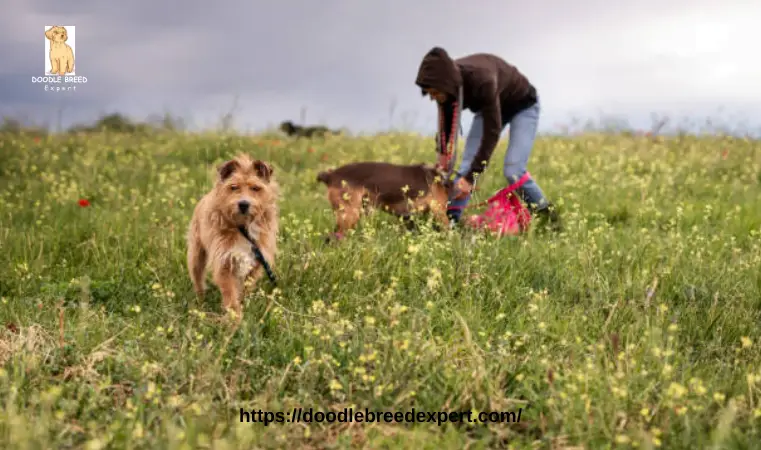
Lawn maintenance is a core activity that many homeowners often prefer professional services to handle issues they cannot manage themselves. TruGreen tops as the largest provider of lawn care services in the United States, serving almost 3.5 million residential and commercial customers nationwide.
TruGreen still commands its market leadership based on one’s research because of its effectiveness toward lush green, green-looking, pest-free lawns. While this remains a big boost to their reputation, it is not all rosy for them based on some issues and occasional shortfalls encountered by their clients.
TruGreen sometimes dilutes the chemicals applied to most lawns, and there have been documented cases of employees failing to apply the required amount or any product at all. While this may slightly alleviate some concerns about your pets, it can similarly annihilate a greater financial investment on your part.
Chemicals Used by TruGreen That May Harm Dogs
TruGreen uses an array of substances involving pesticides, fertilizers, and herbicides for its lawn treatments. Most of these substances tend to be effective for the said purposes alone; while a few may have unintended side effects, the majority are mild. Still, a few pose more severe risks in case proper precautions while using them aren’t adhered to.
For instance, fertilizers by TruGreen have ingredients like bone meal or blood meal. Some of these materials may make the pets vomit and diarrhea due to their inherent toxicities and other gastrointestinal problems. Snail bait (Methyldehyde) is another toxic substance homeowners use in their lawns and causes convulsions. However, it should be known that chemicals applied by TruGreen are strictly approved.
One of these chemicals is metaldehyde, an ingredient infamous for its toxicity, called for at times when there is a need for some homeowners to control snails and slugs on lawns. There are many states where certifications and licenses are required concerning controlled substances, especially in businesses.
Since the chemicals from TruGreen are potentially harmful to pets when ingested, it is highly advised to keep a pet off lawns treated by TruGreen for at least two days or until such time that one can be sure that the grass has already absorbed the chemicals or are already dispersed into the surroundings.
Though there are benefits in using TruGreen services, like ease and expertise, caution must still be exercised, especially concerning having pets around.
Is TruGreen Safe for Dogs?
Is TruGreen Safe for Dogs? Surely, TruGreen services can prove to be a huge danger to dogs. The chemicals used by the company may be more toxic for your dog than any other domestic animal, especially when these chemical agents are still wet and close to your dog’s body. This contact may take place in several avenues. For instance, your dog could walk over the freshly treated lawn and innocently pick up the chemical agents on its paws. When licking or consuming them out of their paws or using them in scratching most parts of its animal group, poisoning comes in automatically. Inhaling the vapors produced during application is dangerous and would yield unpleasant symptoms to your best friend.
It is even worse if your dog accidentally eats the chemicals used by this company, as it could leave them with organ damage. Some homeowners have claimed that TruGreen may use metaldehyde in their treatments. Many homeowners use this chemical as snail bait to control snails on the lawn, and when eaten, the chemical has been known to cause gastrointestinal symptoms like vomiting and diarrhea.
Some forums speculate a link between the death of dogs and ChemLawn, the predecessor to TruGreen. Although this has not been established in research as true or untrue, it is evident that chemicals used in TruGreen may be toxic and harmful to your dog. So when deciding anything about your pet’s safety, always follow the better-safe-than-sorry approach.
Read also: Who Owns Canidae Dog Food?
What chemical does TruGreen use?
TruGreen uses a variety of chemicals in their lawn care treatments, although they generally do not openly report what exact list of chemicals is used by them. However, information on the specific kinds of chemicals used by TruGreen has been reported through various sources. It must be noted that these chemicals, made for making lawns greener and healthier, can have adverse effects and could be toxic to wildlife and pets, too. Some of the chemicals used are:
- 2,4-D: Herbicide causes eye damage, skin irritation, and more.
- Atrazine: Herbicide and pesticide linked to organ failure.
- Bifenthrin: Insecticide causing skin and respiratory issues.
- Carfentrazone-ethyl: Herbicide leading to respiratory issues and eye damage.
- Clopyralid: Herbicide is hazardous when inhaled or on the skin.
- Cyfluthrin: Highly toxic insecticide, especially for dogs.
- Diazinon: An extremely hazardous insecticide with potential carcinogenicity.
- Dicamba: Herbicide causing eye irritation and toxicity.
- Dithiopyr: Herbicide affecting eyes, liver, and thyroid.
- Fenoxaprop-p-ethyl: Herbicide causing eye irritation.
- Glyphosate: Potent herbicide with cancer links and eye injury risks.
- Imidacloprid: Insecticide leading to eye irritation.
- Myclobutanil: Fungicide causing eye irritation.
- Naphthalene: Pesticide affecting blood cells, liver, and kidneys.
- Pendimethalin: Herbicide causing eye irritation.
- MCPA: Herbicide poses extreme hazards to the eyes, liver, and kidneys.
- Prodiamine: Herbicide affecting eyes and nervous system.
- Quinclorac: Herbicide impacting eyes and liver function.
- Trichlorfon: Toxic insecticide affecting the nervous system.
- Triclopyr: Herbicide affecting eyes and liver function.
- Trifloxystrobin: Fungicide irritates eyes and impacts liver function.
One should always remember that all these chemicals are registered to be used on lawns, and TruGreen conforms to environmental regulations while applying them.
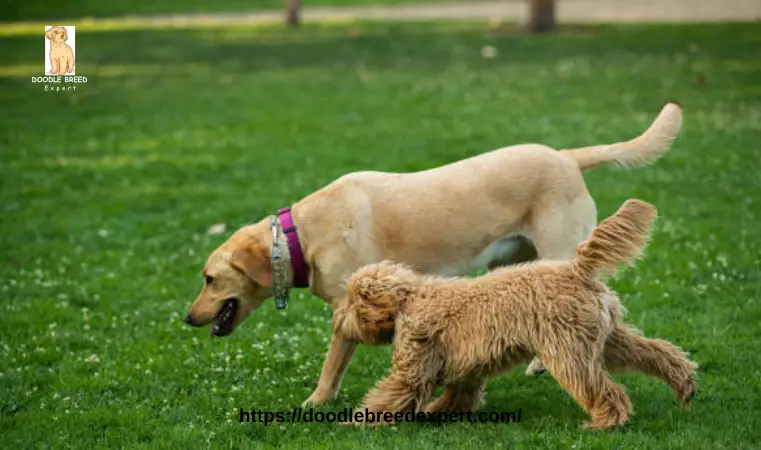
What is the lawsuit against TruGreen?
As people try to reduce their reliance on synthetic pesticides and fertilizers, they face a surge in deceptive marketing practices known as greenwashing.
In the past, Scott Miracle-Gro faced legal penalties for pesticide violations, including mislabeling. TruGreen also faced legal action in 2020 when Beyond Pesticides sued them for false claims of providing eco-friendly lawn care without harmful chemicals despite using glyphosate, a probable carcinogen, and other dangerous substances.
According to Beyond Pesticides, TruGreen uses glyphosate, which the International Agency for Research on Cancer has classified as “probably carcinogenic.
Furthermore, California’s pesticide agency warned about EcoMIGHT products marketed as organic but containing potentially hazardous pesticides in July. Unfortunately, there is no official certification for organic landscaping, unlike organic food.
This is a significant concern because thousands of pesticides, some linked to serious health problems, are used on lawns. For instance, 2,4-D, a commonly used herbicide, is known to be toxic to humans and animals, potentially causing liver and neurological issues and possibly even cancer and endocrine system disruption.
Many “weed and feed” products sold in stores may contain harmful pesticides like 2,4-D and chemical fertilizers that can contaminate water sources. Although these products may not claim to be natural, terms like “green lawn” can mislead consumers. Consumers need to know where to find reliable information and what questions to ask to make informed choices.
Symptoms Of TruGreen Poisoning In Dogs
Constipation is among the very common signs of lawn chemical poisoning in dogs. If your dog has been exposed to TruGreen, other symptoms that may appear include vomiting, diarrhea, abdominal pain, and loss of appetite. The severity of these signs will depend on the dose ingested, body size, and health condition.
The second symptom displayed by toxicology from lawn chemicals includes excessive drooling and increased thirstiness in infected canines. Dogs are likely to experience difficulty swallowing, leading to further drooling and salivation. Excessive water consumption may also display dehydration symptoms in an organism.
Dog poisoning from lawn chemicals may also present with neurological signs like muscle tremors, seizures, confusion, or unconsciousness. If your dog shows any of these symptoms, then take them to the vet immediately because they probably react severely against the toxins.
Keep aware that it is possible for the dog not to show any sign of chemical exposure at first. Symptoms could arise hours or days later because it depends on how fast and how much metabolizing power your dog has. If you find out that your dogs might have come into contact with TruGreen products, then be very alert and carefully watch their condition.
What to Do If Your Dog Eats Grass Treated with TruGreen?
If you believe your dog has been exposed to TruGreen chemicals, including ingesting the grass, inhaling it, or coming into contact with its skin, act as fast as possible. The process is:
- Contact Your Veterinarian or Pet Poison Hotline: Call a pet poison hotline or your veterinarian immediately. Explain what happened in detail, and they will tell you if professional treatment for your animal is necessary.
- Don’t Make the Dog Vomit: Unless advised to do so by a vet or a pet toxic hotline, avoid making your dog throw up. Some chemicals may cause more damage coming back through its throat.
- Fast Your Dog from Food, Water, and Medications: Don’t give your dog any food, water, or medication unless directed by a vet or poison helpline for pets. Substances given orally tend to react with other chemicals in their system, thus causing negative effects.
- Clean Your Dog’s Mouth and Wash Their Fur: Rinse your dog’s mouth with water to get rid of its chemical constituents. You can also wipe their paws and fur on different body areas with a wet cloth to remove the residual chemicals.
- Watch Out for Poisoning Symptoms: Monitor your dog closely for signs of poisoning, and if observed, immediately report such symptoms to a veterinarian or pet poison helpline.
In cases where there is an immediacy involved in taking action, it might be important at first place to monitor the dog if you are reasonably sure that only its outside portion (skin) was exposed.
Is TruGreen’s Insect Repellent Safe for Dogs?
This insecticide from TruGreen is not dog-safe. It has an equal number of harmful ingredients as lawn care products. As a safety measure, the pets should be kept indoors at least 24 hours after their application until those components are completely dried up. This minimizes the poison effect in large percentages. Insecticides used for mosquito control by TruGreen include:
Bifenthrin causes skin irritations in dogs, breathing problems leading to lung infections, digestive tract inflammations if ingested too much, causing more trouble to other organs, or even convulsions, tremors, and damage to the central nervous system.
Permethrin is another dog-poisonous insecticide that, when ingested or contacted with its body. It may cause eye and skin irritations and damage internal organs.
Natural synthesized from chrysanthemum flowers, insecticides are safe for dogs in moderate doses but can get harmful by excessive exposure. The most harm is associated with the combination with other poisonous substances. Pyrethrin causes allergies accompanied by vomiting, diarrhea, excess saliva production, myoclonus, epileptic seizures, and sometimes death of animals.
Is TruGreen Granular Fertilizer Safe for Dogs?
Dogs cannot use TruGreen’s granular fertilizer because it is unsafe. The product contains chemicals harmful to animals and some of the ordinary ingredients in most other fertilizers, like nitrogen, phosphorus, potassium, and iron. Organic materials used by TruGreen may include animal byproducts such as bone meal or blood meal. These substances may appear attractive to the dog with an appealing scent but are sometimes threatening.
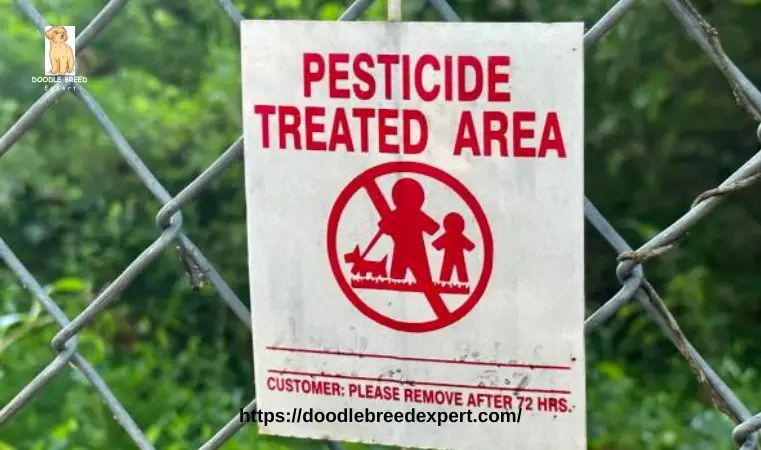
For instance, once inside a dog’s intestines and reactive with them, these organic materials coagulate into great masses akin to cement, calling for surgical procedures.
What can I use instead of TruGreen?
- Natural and Organic Products: These contain plant- or animal-based ingredients such as compost, manure, seaweed, vinegar, maize gluten meal, and neem oil. They are environmentally friendly, enhance soil quality, repel pests, and nurture lawns. However, they may be slower and require more frequent application.
- DIY Lawn Care Techniques: You can have a healthy lawn by cutting grass at its ideal height, deep watering for root development, annual aeration, overseeding in fall, planting grass when needed to avoid bare spots, manually removing weeds using mulch or ground cover and applying natural repellents like garlic, chili pepper or citrus peels coffee grounds diatomaceous earth on occasion.
- Local Lawn Care Services: Find companies giving natural, organic, and less toxic treatments. They often know the regional nuances better and have a personalized service to offer but might be on the higher side of costs with limited availability options compared to national chain services.
Exploit safer alternatives than TruGreen. Always research and compare prices, ask for references and testimonials, and ensure quality and customer satisfaction before choosing a lawn care service.
Conclusion: Is TruGreen Safe for Dogs?
Is TruGreen Safe for Dogs? TruGreen’s products are serious toxicity hazards not only to dogs and other pets but also dangerous for the environment. Some of their chemicals may even have human contact-related health issue implications, too. It is not just about hurting animals.
If you feel it necessary to hire a lawn service for treatments, inquire about what kind of ingredients they will be using. Read Material Safety Data Sheets that might cover substances that are unfamiliar or perhaps misunderstood by you. If a company doesn’t provide this information, you better keep looking until you find one willing to tell you their materials.
In addition, after any lawn care treatment is applied by any company, your dogs, other pets, and children should be kept inside for at least 48 hours. These days, many natural or organic alternatives are just as effective, if not more so, than their dangerous chemical counterparts and safe for your family, pets, and the environment.
References:
- Scotts Miracle-Gro Will Pay $12.5 Million in Criminal Fines and Civil Penalties for Violations of Federal Pesticide Laws. (2014, September 16). https://www.justice.gov/opa/pr/scotts-miracle-gro-will-pay-125-million-criminal-fines-and-civil-penalties-violations-federal
- Pesticides, B. (2020, March 30). Lawsuit Challenges TruGreen Chemical Lawn Care Company for Deceptive Safety Claims; Pesticide Applications Stopped by Some States During COVID-19 Crisis as Nonessential. Beyond Pesticides Daily News Blog. https://beyondpesticides.org/dailynewsblog/2020/03/lawsuit-challenges-trugreen-chemical-lawn-care-company-for-deceptive-safety-claims-pesticide-applications-stopped-by-some-states-during-covid-19-crisis-as-nonessential/
- IARC Monograph on Glyphosate – IARC. (n.d.). https://www.iarc.who.int/featured-news/media-centre-iarc-news-glyphosate/
- Module Four – Lecture Notes | Toxicology Curriculum for Communities Trainer’s Manual | ATSDR. (n.d.). https://www.atsdr.cdc.gov/training/toxmanual/modules/4/lecturenotes.html
- Affordable Lawn Care Maintenance & Treatment Services | TruGreen. (n.d.). TruGreen Lawn Care Service. https://www.trugreen.com/
- Lutz, A. (2023, September 5). TruGreen Review (2023). Architectural Digest. https://www.architecturaldigest.com/reviews/lawn/trugreen-reviews
